In a Commons debate on the UK submarine fleet, James Cartlidge, MP for South Suffolk and Shadow Secretary of State for Defence, used his prior experience as Minister of State in the Ministry of Defence (MoD) to highlight the strategic importance of the nuclear deterrent while addressing the challenges facing the UK’s submarine enterprise.
Cartlidge praised the contributions of those working within the nuclear enterprise and stressed the need for continued investment.
Cartlidge began by acknowledging the vital role played by submariners in maintaining the UK’s continuous at-sea deterrent. “It is important and timely, as well as incredibly interesting… [to thank] all those who serve on our submarines, particularly those who have maintained our continuous at-sea deterrent 24/7 since 1969. Theirs is an incredible achievement.” He extended his appreciation to the wider defence nuclear enterprise, highlighting contributions from apprentices and contractors at facilities such as Faslane, Barrow, and Devonport. “It is a huge national endeavour, which I am pleased all parties here now support.”
High8j8 the nuclear deterrent’s critical importance, Cartlidge stated, “Nuclear is the most important part of our defence, because no matter what missile defence we have, that is not the reason the Russians will not launch at us. The reason is our ability to retaliate.” He added that the deterrent’s unparalleled importance necessitates its upkeep and enhancement. “It is an extraordinary weapon which we must maintain, especially with the threats that we face today.”
However, Cartlidge identified challenges facing the submarine fleet and the wider nuclear enterprise. He pointed to the need for skilled personnel across the supply chain, not just within the Navy. “There is a key point about the deterrent… it does have its challenges. Colleagues have mentioned people and personnel, but I think it is not just about those who serve in the Navy. When I was a Minister… we set up the nuclear skills task force to really inculcate growth in skills in the whole supply chain, whether at AWE or Rolls-Royce.”
Cartlidge also underscored the critical need for increased investment in infrastructure, which he noted had contributed to delays and inefficiencies in the nuclear enterprise. “When it comes to the nuclear enterprise, the need to invest in infrastructure is huge. It has been a significant factor in some of the issues we have experienced in terms of maintenance and so on.” He highlighted the £1.8 billion invested in Faslane since 2015 but stressed that this was only a starting point for addressing broader needs.
Calling on the Government to fulfil its pledge to allocate 2.5% of GDP to defence, Cartlidge sought clarity on the timeline for this commitment. “It is vital that the Government bring forward their promise to spend 2.5% of GDP on defence. The Daily Mail splashed that the target will not be reached well into the 2030s. It would be interesting to hear what the Minister thinks about that speculation.”
Cartlidge concluded by highlighting the economic benefits of the nuclear enterprise, particularly in the context of defence exports such as the AUKUS partnership. “It is going to be one of our biggest ever defence exports… The manufacture there by Babcock of the missile tubes… is one of the best UK examples of extraordinarily skilful manufacturing. The ability to manufacture nuclear submarines, with all their technology, is quite extraordinary, and we should be very proud of it.”
Cartlidge’s remarks demonstrated the continued importance of the UK’s submarine fleet, both as a deterrent and as a driver of economic and technological growth. His speech also underscored the pressing need for increased investment to ensure the enterprise remains a cornerstone of national security.


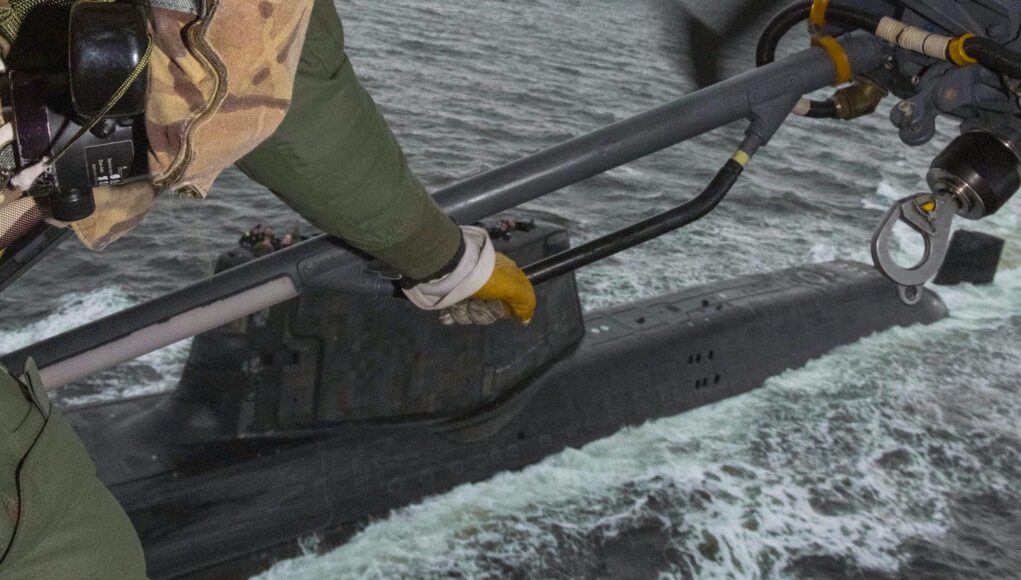

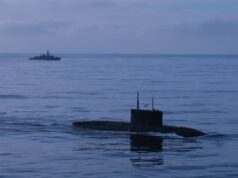
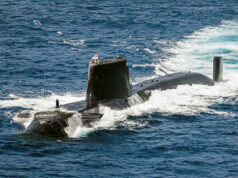
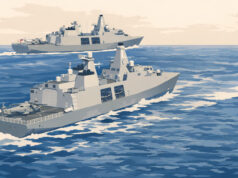
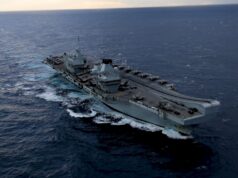
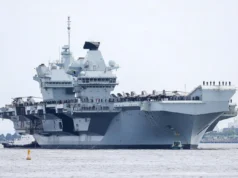
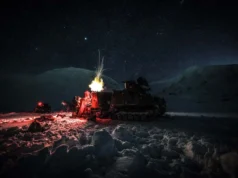
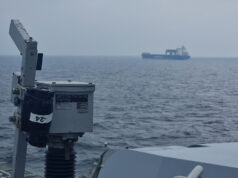
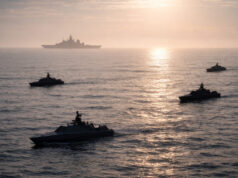
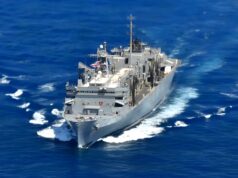

It often amazes me how many people advocate for higher defence spending but dismiss spending on the deterrent as a waste of money. Like we should have an extra division in the army to deter the Russians yet don’t worry about the 6,000 nuclear war heads they have.
In the UK defence spending should start with the deterrent and everything else should be built around that, the vast majority of our spending goes on expeditionary force designed to support the USA and other Allie’s. Up until now this has been the right way to do things but with the USA political scene now changed on a fundamental level it might now be the best way for much longer. The deterrent is the UK’s number one defensive capability and it’s also the most important capability it brings to NATO
Our nuclear capability is not a defence of any kind, nor can your build a defence around it. It is a deterrent.
Consider a shield and a sword. If attacked, you can use a shield to prevent you being injured. A sword can be used defensively too, either to parry or to injure/kill the opponent so that you still won’t be hurt. Our nuclear weapons aren’t like any of that. They provide no shielding, they cannot parry, nor can a pre-emptive strike stop our country from being subsequently destroyed. They are a deterrent, pure and simple. And they are not enough, because they only deter existential conventional attacks and don’t deter grey zone attacks at all, not from other nuclear powers nor even from non-nuclear powers. It’s possible they won’t deter biological or chemical attacks either.
Nuclear stops nuclear, so the deterrent is valuable. However, we need defences against a whole host of non-nuclear threats as well. Arguably if we didn’t have a nuclear deterrent, Russia would no more nuke us than we would have nuked Argentina over the Falkland Islands. We have a nuclear deterrent because we don’t want to chance that; however, conventional defences might well be more important. Either way we certainly don’t have the best possible defence in nuclear, because it isn’t a defence at all. It is no substitute.
valid arguments and simplistic answer is we need conventional and nuke. how would putin have played it if ukraine had kept nuclear weapons. also interesting to think on india v pakistan both with nukes sadly but with the stakes so high may have focused both sides to pause? what is so valuable is to have the second strike capability deterrent , uk flattened, and there remains a uk boat at sea able to attack
The only real threat Russia poses to the UK and NATO is nuclear. A nuclear deterrent is the only reliable means of deterring aggression. If we had no nuclear deterrent then we can have as many divisions as you like Russia would win simply by threatening to use nuclear weapons.
The nuclear deterrent is the most important aspect of British defence by far, next being air defence followed by control of the North Atlantic. Everything else is expeditionary, designed to support Allie’s.
Even in a NATO context ENATO has 1.8 million regular military personnel. It dwarfs Russia in every metric from number of armoured vehicles to fighter aircraft.
The only area it’s lacking is nuclear weapons.
Ergo British and ENATO security is best enhanced by the UK maintain a strong and credible nuclear force.
We should stop looking at the Trident as some political bluff. It is a very real military capability and it has far more capability than simply blowing up the world.
Trident D5 represents NATO’s main nuclear counter force asset and we make up a very large part of what is routinely deployed by NATO.
Given the erratic nature of the Russian regime nuclear counter force may be a very real mission we have to carry out some day.
What you say is right Jim. Nuclear is the ultimate weapon to stop anyone from thinking about escalation and holds down the level of threat to essentially a conventional one. Beyong that of course is the need to counter those threats. I do believe that the likelyhood of Russia attacking the U.K. with conventional means is highly unlikely but the threat of cyber, sub/sea and terrorism is very real. Whilst I support the concept of global reach, with a carrier deployment too, the only nation that can realistically match China is the U.S.A. We should look to defend the U.K. and North Atlantic in the air and ar sea and be ready to take action with highly mobil forces. Supporting the U.S. for example in the gulf might well free up U.S. forces for the Pacific.
Global reach is possible but we can’t brag too much. the carriers can go around the world and we should use them to full capability but we have limited resources. Let’s keep china guessing and carry on with visits to the east.
I don’t think China is going to be worried about a carrier every three years for a couple of months with a handful of aircraft and virtually no AEW. An extra U.S Carrier Battle Group on the other hand…
If you want peace prepare for war, for me this is the only deterrent needed, Nuclear stuff with a small super trained military. The rest could be achieved with diplomacy if only we had any diplomats worth their salt. I’m sure many will disagree but I am a peace dove without appeasing the warhawks and I know from my perspective things ain’t lookin’ good. I will leave you with Von Runstedt’s reply to OKH’s nquiry about what to do about the Normandy invasion, “Make peace you idiots” ❤️ ☮️
I sympathise with your comments and for sane reasons agree with them BUT and it is a big one. If we disarm what is to stop the likes of Russia or even Iran striking the bridge across the Atlantic, ie. the U.K. to take us out or in the latters case for purely fanatical purposes..
You haven’t met a single one of our diplomats, have you?
Am reasonably convinced HMG is investing across the nuclear enterprise at a pace constrained by defence budget. The scope of required reinvestment is immense: development and acquisition of Dreadnought class SSBNs, refurbishment of nuclear maintenance infrastructure at HMNB Clyde & Devonport, manufacture of new and increased number of nuclear warheads at AWE, increased investment in MIC infrastructure at Barrow and Derbyshire and uncounted smaller facilities of subcontractors, parallel design of SSN-A class, and certainly many additional tasks. Simultaneously. Then, of course, is the conventional forces refurbishment/update side of the ledger…Certain that MoD/RN is attempting to correcty prioritize tasks and expenditures, but it is difficult to recover from a literal generation of chronic underfunding. The proverbial image of a Dutch lad attempting to staunch multiple leaks in a dike, simultaneously, comes unbidden to mind. Sorry, 2.3% of GDP for Defence simply ain’t gonna hack it. No how, no way. Not yesterday, today, or tomorrow. And that assessment doesn’t even spring from an accounting background, but rather a systems engineering perspective.
I’ve said many times now, the cold war defence budget purchased equipment has run out now and we’ll need to finally decide either to increase the defence budget to recapitalise or accept we’ll be reliant on the US to defend us ( given current climate it’s chancy ) in a similar way to Ireland relying on the UK and the EU relying on France.
I think 2.5% will be fine but not if 0.3% of that is going on foreign aid. SSN AUKUS may be a luxury we won’t be able to afford however. Much will depend on how much extra we need to put into European forces.
As posters will know who have read my comments over the years here, I think Labour are utterly useless regards Defence, and I fear this will become more apparent over the years if they revert to ideology with our defence posture.
However, I just cannot take seriously ANYTHING the Tories say in opposition considering what they did from 2010 on.
Considering SSN, the shadow ministers subject, where was the upgrading of the infrastructure years ago when they had control.
Words are cheap, and so so easy when in opposition.
They all make me sick.
Ahhh, in the words of the immortal Bard, “First thing we do, let’s kill all the lawyers (aka the political class).” The sentiment is expressed by the character John Cade in Henry VI (Act IV, Scene 2). Somehow comforting to realize our common forefathers shared a healthy scepticism of our political masters. 🤔😳😉😁👍
I think along with the NHS, defence should not be in the hands of a single party who is in power. It should be the responsibility of a cross party commitee charged with the defence of the realm. This should take politics and short termism out of the equation and go a long way to cutting waste,
As part of a massive spend on defence that is urgently needed in the face of the threats all around we need to build, arm and man at least a other 10 submarines with nuclear missiles so we can credibly threaten our enemies, Russia, china amongst them. We need to be able to ensure no backsliding on the part of the USA when Russia continues its invasion of Europe… We know they have left a string of countries high and dry despite big words, Ukraine being but the latest. (Sending an occasional gun is not what was promised in return for giving over the nuclear weapons). We need to also build some more nuclear bombers, nuclear drones and hypersonic land based nuclear missiles. If Russia can afford this with a lower gdp than us then we can damned we’ll afford it, perhaps cut out the waste elsewhere.
Nuclear deterrent is an insurance policy, an insurance policy against nuclear Blsck mail or attack.
It allows this country to p**s off the Russians with virtual impunity. To consider Putin red lines to be no Existent and to lead where others may follow. Putin’s mouth pieces on a weekly basis threaten the U.K., but Putin knows the consequences of throwing a Nuc at the U.K.
As far as I am concerned it is priceless. However it should never be at the detriment of conventional defence.